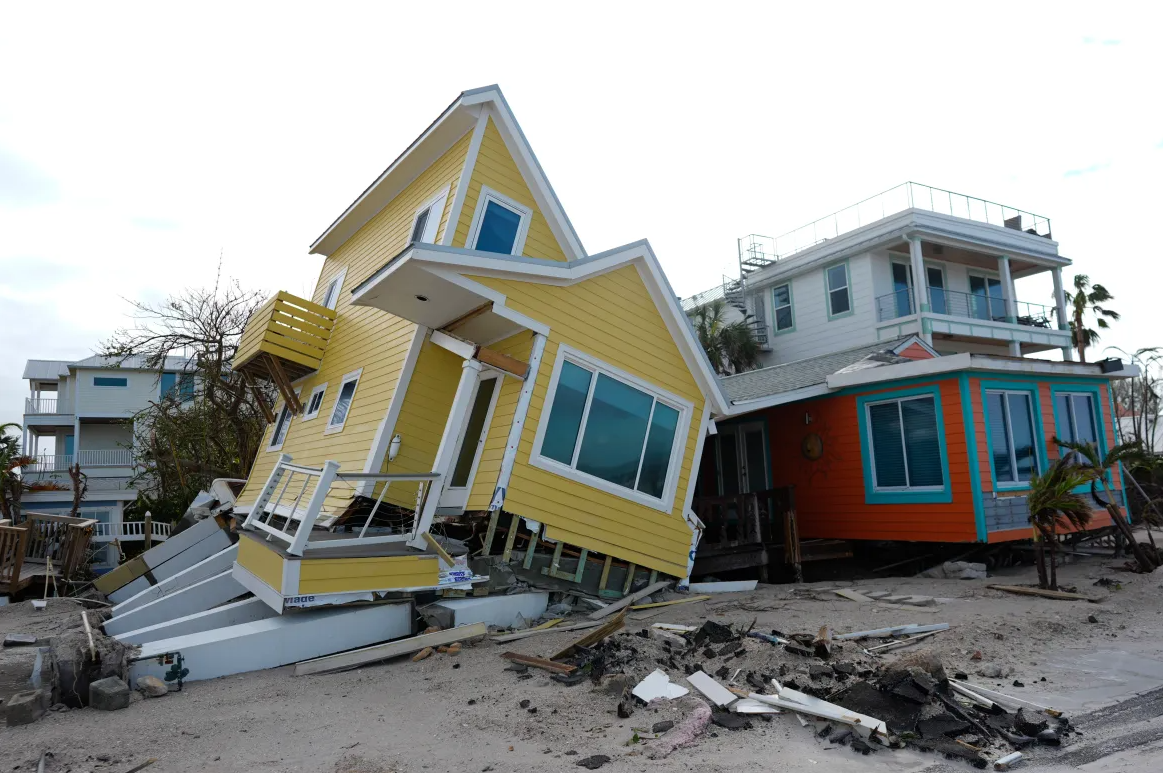
Many Florida homeowners are facing catastrophic losses from water damage, with some simply walking away from their properties. Bridgette Bello believed she had taken all necessary precautions against hurricanes, purchasing flood insurance, a separate hurricane policy, and standard homeowners coverage.

However, nearly two weeks after Hurricane Helene struck—and before Hurricane Milton arrived—Bello, 54, describes her situation as an insurance “nightmare,” facing delays and denials on her claims.
“We did everything we were supposed to do,” said Bello, who lives near Madeira Beach outside Tampa. “We protected ourselves and our home.”
In the wake of Hurricanes Helene and Milton, Florida hurricane victims, even those with insurance, are struggling to recover. The insurance industry is treating the storms as separate events, which complicates claims for those who didn’t document damage from Helene. This means claim denials could increase for victims impacted by both storms.
Reforms intended to draw insurance companies back into Florida’s market have left victims with little legal recourse to contest claim decisions.
“Most people are just trying to maximize their damage estimates and hoping for payouts,” said Rick Tutwiler, president of Tutwiler & Associates. “Many don’t realize the challenges ahead.”
For the majority of affected residents, the financial losses are overwhelming, primarily due to flooding that most homeowners policies don’t cover. According to NBC News, fewer than 25% of residents in the hardest-hit areas had separate flood insurance prior to the storms.
The combination of both storms creates additional complications for those with insurance. The industry classifies Helene as largely a flood-driven event, while Milton involved both wind and rain. Experts warn that property owners lacking flood insurance may find their claims denied, as many policies exclude flood-related damage.
“In situations like this, insurers are likely to deny claims outright if there’s no flood insurance,” said Amy Bach, executive director of United Policyholders.
The damage from Helene is expected to lead to modest losses for insurers, according to Mark Friedlander of the Insurance Information Institute. Determining which storm caused specific damages could be “challenging,” he added.
Adjusters must distinguish between flood damage from Milton and wind-driven rain, and coverage may be denied if damage is linked to pre-existing issues, such as a leaky roof.
Many homeowners facing severe losses due to water damage are opting to walk away. “Most people can’t realistically afford to rebuild,” Friedlander noted.
Patti Drew, 81, from Punta Gorda, experienced flooding from both storms and lacks regular homeowners insurance, a situation shared by about one in six residents in nearby Charlotte County. With a fixed income, her family has set up a GoFundMe to help.
“I’m heartbroken. I don’t know what else to say,” Drew said.
For those like Drew, the only financial assistance available comes from FEMA, which had already issued $344 million in relief to approximately 375,000 households by the time Milton hit.
Even flood insurance policyholders are facing financial challenges. The National Flood Insurance Program (NFIP) only covers losses up to 50% of a property’s deemed value, excluding land. Homeowners must rebuild almost entirely out of pocket beyond that threshold.
Bello and her husband expect no more than $190,000 for repairs to their home, which is worth significantly more based on neighborhood sales. Additionally, the NFIP doesn’t provide funds for temporary housing, forcing them to pay out of pocket for accommodations.
As she returned from Orlando, Bello still didn’t know the full extent of the damage to her home from Milton. She has received about $3,100 from FEMA so far.
Faced with denials, many homeowners consider suing their insurers. However, recent reforms require homeowners to pay out of pocket to initiate legal action, limiting their ability to contest claims.
While the reforms aimed to stabilize the market, experts warn they may also incentivize insurers to deny claims more readily. “There’s strong motivation to find every possible reason to deny a claim,” said Martin Weiss, president of Weiss Ratings.
These circumstances have sparked calls for more comprehensive insurance reforms in Florida, with some officials advocating for changes to how the industry handles hurricane damage.
“I want to work with those affected to drastically change how we do insurance in Florida,” said Broward County Republican state Rep. Chip LaMarca. “We must fix it for every Floridian.”